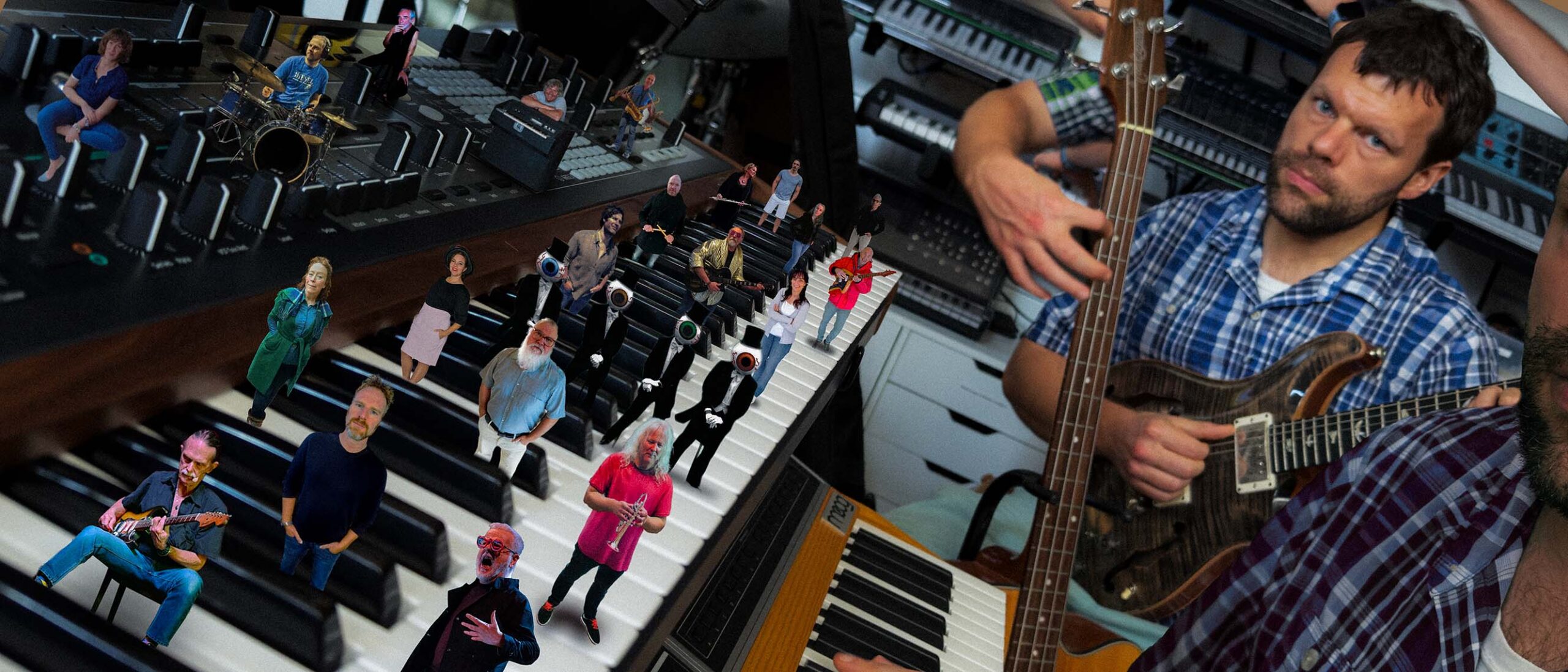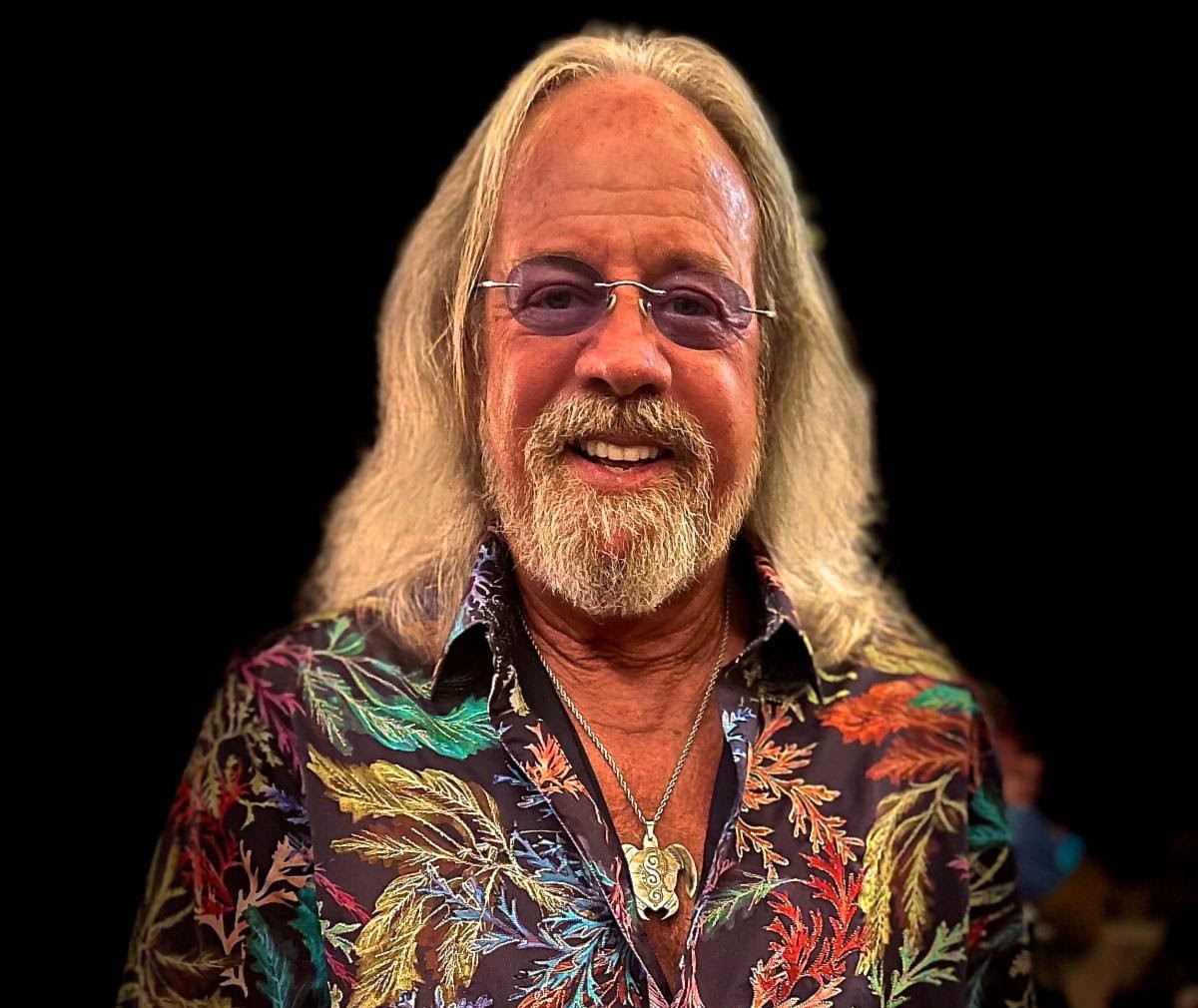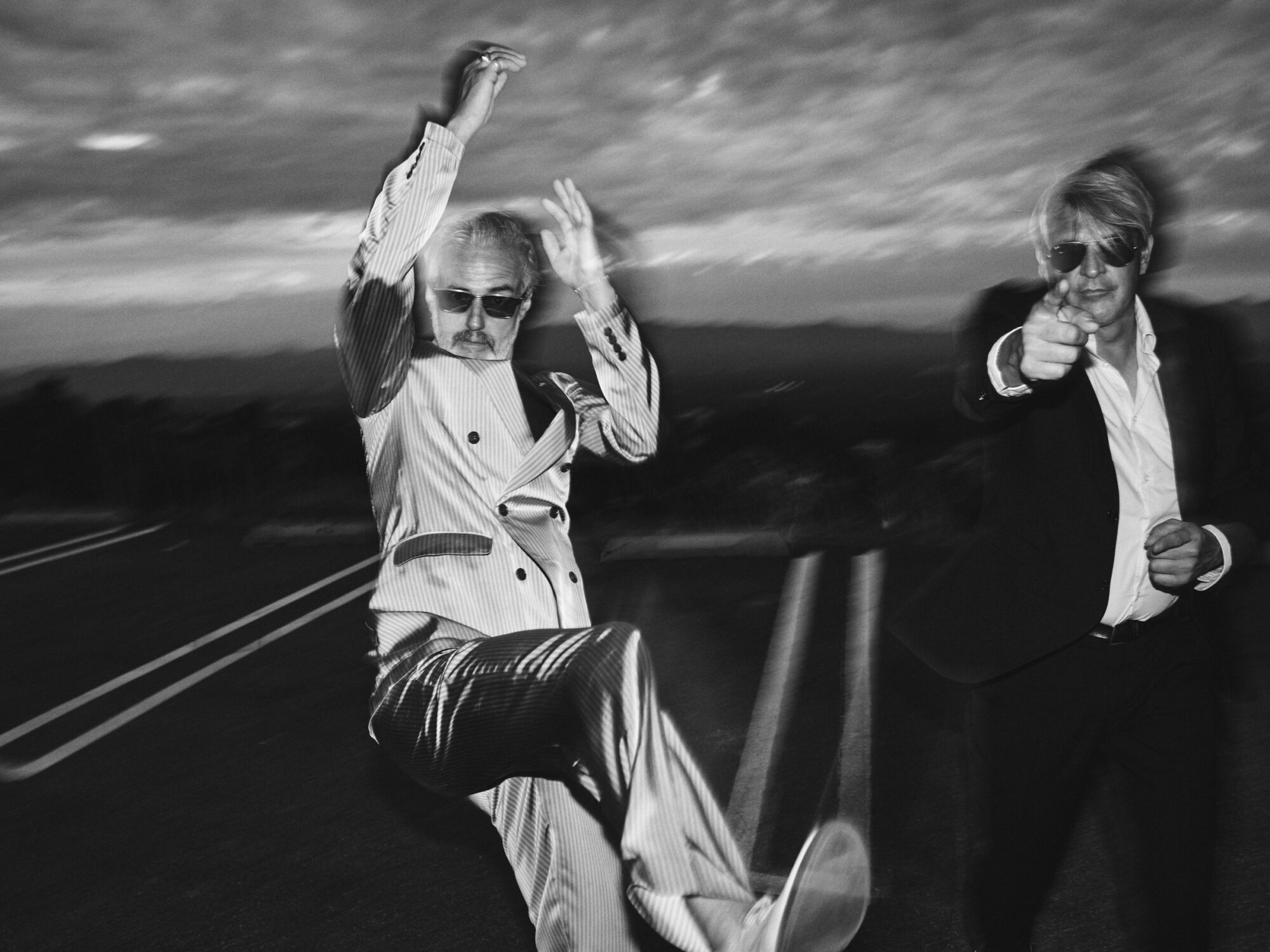Inside the Void of The Gatekeeper | Interview
Alex Wroten’s The Gatekeepers is the kind of project that doesn’t bother with neat categories. It’s a wild blend of rock, classical, and avant-garde chaos, fueled by his background in film scoring and a lifelong obsession with experimentation.
Think early Police, Pink Floyd, and Frank Zappa—but a lot less tidy and a whole lot more weird. Before this, Wroten was all about instrumental music and film scores, but The Gatekeepers marks his shift to something messier: storytelling, concepts, and a bit of a rant about the state of the music and film biz. Born from his work remixing Renaldo & the Loaf, the album became an offbeat critique of the grind between creativity and commercialism. He got some heavy hitters involved—The Residents, R. Stevie Moore, Shawn Phillips—and the result is a record that feels stitched together from all kinds of odd places, but somehow makes total sense. Next up, ‘Nostalgia for the Great American Monoculture,’ takes a swipe at the digital circus we’re all stuck in, throwing sharp jabs at the modern world’s fractured identity.
In this chat, we dive into Wroten’s wonderfully weird evolution, the themes of his albums, and his totally unorthodox creative process—shaped by a life spent making movies and crafting music that doesn’t fit into any box. We’re excited to premiere a track from his latest album in today’s article and interview. When asked about ‘A Knight in Shining Tanktop,’ Wroten said: “The world’s falling apart—dictators, doomsday clocks, acid rain, and scraps for dinner—but don’t worry! All we need is one ripped, action-movie hero to save the day. This tongue-in-cheek anthem pokes fun at the ridiculousness of the “lone savior” trope, complete with muscles, knives, and some serious over-the-top heroics. Because if society is on the brink, who better to fix it than a guy with blonde hair, ripped jeans, and pure testosterone?”
“I think everything in life is slightly funny if you look at it the right way”
Let’s start with the basics! How did you first get into music? Were there any early moments or artists that shaped your sound or approach?
Alex Wroten: I come from a pretty musical family, though neither of my parents were “musicians.” I’ve been making music since my mom bought me a Fisher Price snare drum when I was 2 or 3. I’ve always pursued my own path, really, worrying at a very young age about repeating myself or reusing certain chord progressions. It didn’t take long before my personal taste spread a bit toward the stratosphere.
I fell in love with The Police when I was 5, Pink Floyd when I was 6, and Emerson, Lake & Palmer by 10. The Residents, Frank Zappa by high school, etc. etc. I think the main element of my influences that shaped my overall sound and approach is that I tend to approach things from a “rock band” angle. My college education was in formal classical music composition, so even though most of what I’m doing would probably be a more natural fit in a classical setting, I just love a rock rhythm trio/quartet core augmented by exotic instrumentation.
The Gatekeepers isn’t your first rodeo, I’m sure. Can you give us a bit of background on your other musical projects and what they’ve taught you along the way?
Until The Gatekeepers, I focused primarily on instrumental music. A majority of my musical output over the last couple of decades has been for film scores, both for myself (since I’m also a filmmaker) and others. I think film music is an easier place to introduce “strange ideas” or different instrumentation because it adds to the unique character of the film in question.
So, the projects before this weren’t necessarily accretive to some culminating result but were more a series of different styles and explorations.
So how did The Gatekeepers come together? Was it a natural evolution, or did you have a specific idea in mind from the jump?
I think it was a natural evolution spurred by a specific moment in time. I had done a couple of remixes for the Renaldo & the Loaf remix album ‘Hardly Gurning While the World is Turning’ and chose to take a very specific approach to the material: attempting to recontextualize/reharmonize all of the lyrics somewhat verbatim, instead focusing on recrafting the musical frame.
I got a big kick out of isolating the vocals and basically building from there, so I thought, “Why not do that for my own project?” The problem, of course, was that I didn’t have a lot of vocal recordings lying around to work with, so that needed to be generated… and that’s the seed of inspiration that got it going.
It’s clear that there’s a strong concept behind the project. What inspired you to craft such a specific narrative, and how did you know it was the right time for this particular story?
The narrative for The Gatekeepers was approached very specifically—not as some lamentation of the state of the music industry or something like that. I don’t think creativity and capital are necessarily well-aligned in the best of times. Instead, I used inspiration from years of making films and submitting them to “festivals,” both being part of and observing friends being part of the rat race of Los Angeles promises and hopes. From “someone I know knows someone who knows someone who knows someone” to “maybe I’ll make it big by posting random things on YouTube,” when, in reality, things are probably a lot more a factor of randomness and attrition.
Anyway, we had a film out in the festival circuit in the 2020-2021 timeframe, and I found the worst tendencies of that whole system were amplified by the “virtual film festival” concept. That is what led me to do it. Plus, I figured it might be a little easier to get in front of some folks to be involved during a time when everyone was basically stuck at home.
Let’s talk about the making of The Gatekeepers. What was the creative process like for that 2022 debut? Any wild moments or behind-the-scenes stories that stand out?
Unfortunately, there is practically nothing wild about the making of these albums (other than the music itself, depending on your perspective!). It’s all very much a process of reaching out, managing timelines, sharing files, rinse and repeat. As I mentioned earlier, based on the process that got me going in the first place, I really needed some vocal material to get started. So I would reach out to folks, give them a bit of background on me, the project, and see if they were interested.
And though I say “folks,” I should take this opportunity to put myself back in the shoes I was in then and say: it was a huge honor to me that so many people I personally love and respect returned my emails at all, much less agreed to be part of such a weird project.
Because I didn’t know how each person would prefer to collaborate or how best to approach their process, I really didn’t come with any preconceptions or prewritten material before approaching anyone. I would ask if they’d be interested, then write some lyrics/melodies that I felt matched my version of them in my own head. So it was really one song at a time—write some stuff, send it off, next song. The second album was much less piecemeal.
Once all the vocals came back, I’d flesh out the backing tracks to suit the performances, then reach out to more instrumental players to add their flavors to that mix. So it was a multi-step process to get the final sound, keeping each step as collaborative and free as it could be.
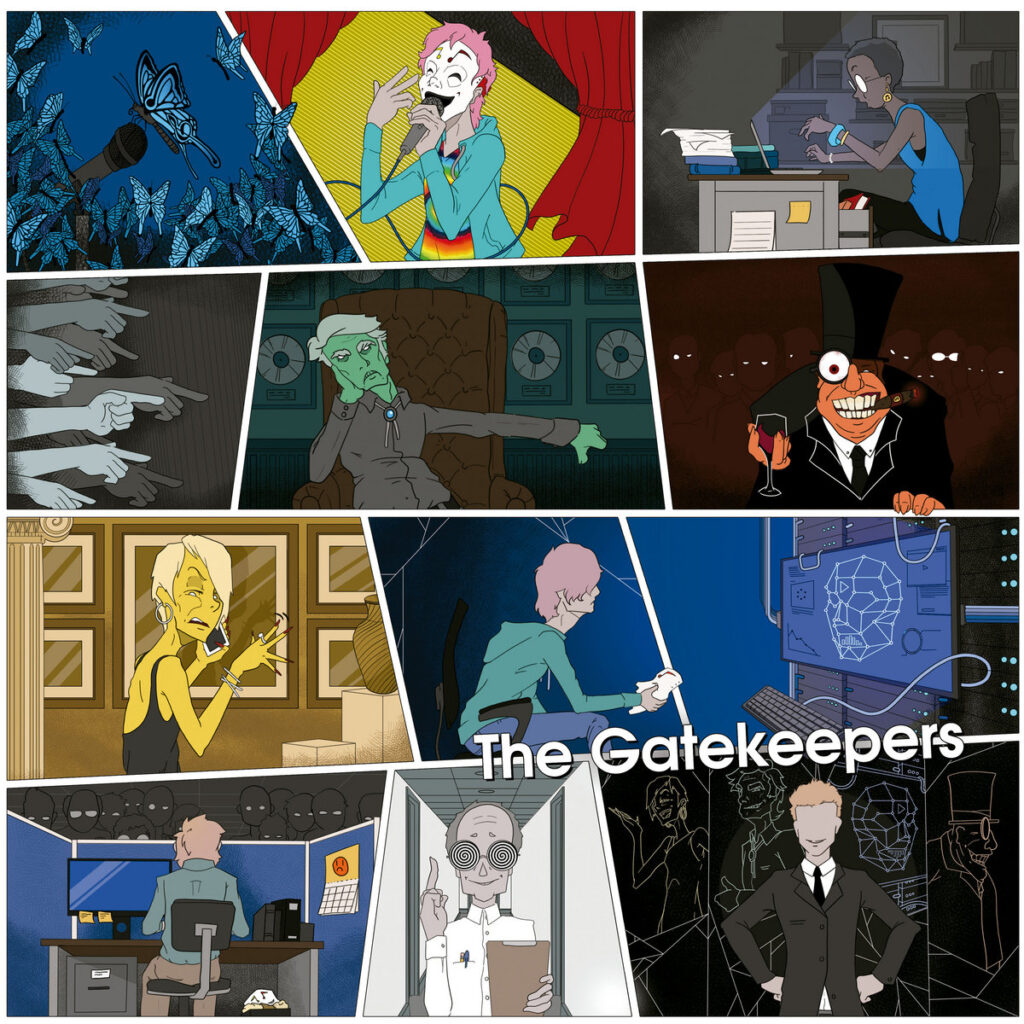
Comparing ‘The Gatekeepers’ with ‘Nostalgia For The Great American Monoculture,’ what do you think has shifted for you musically and conceptually between the two?
For ‘Nostalgia,’ I felt there still needed to be a thematic tie for everything to feel like it was in the same overall Gatekeepers space, but I specifically didn’t want to do another narrative in the same way. I wanted to worry more about the flow of the album and not as much about its story. Musically, the main thing that changed is that the songs were more fleshed out before the backing tracks and vocals were shared.
I had learned an important lesson on the first one: when I first reached out to The Residents, the song I sent to them (‘The Patron’) had the absolute most barebones, almost monotonous, dancey background track I could have put together. I don’t think it really clicked because they couldn’t envision where it was heading. So after a slightly lukewarm response, I hurried to flesh it out into something more like what I intended, with the string section and brass and all, and when I sent that version back, it clicked. So in order to not repeat the mistake of leaving things too open-ended, I chose to flesh out as much as possible where it would be helpful for context.
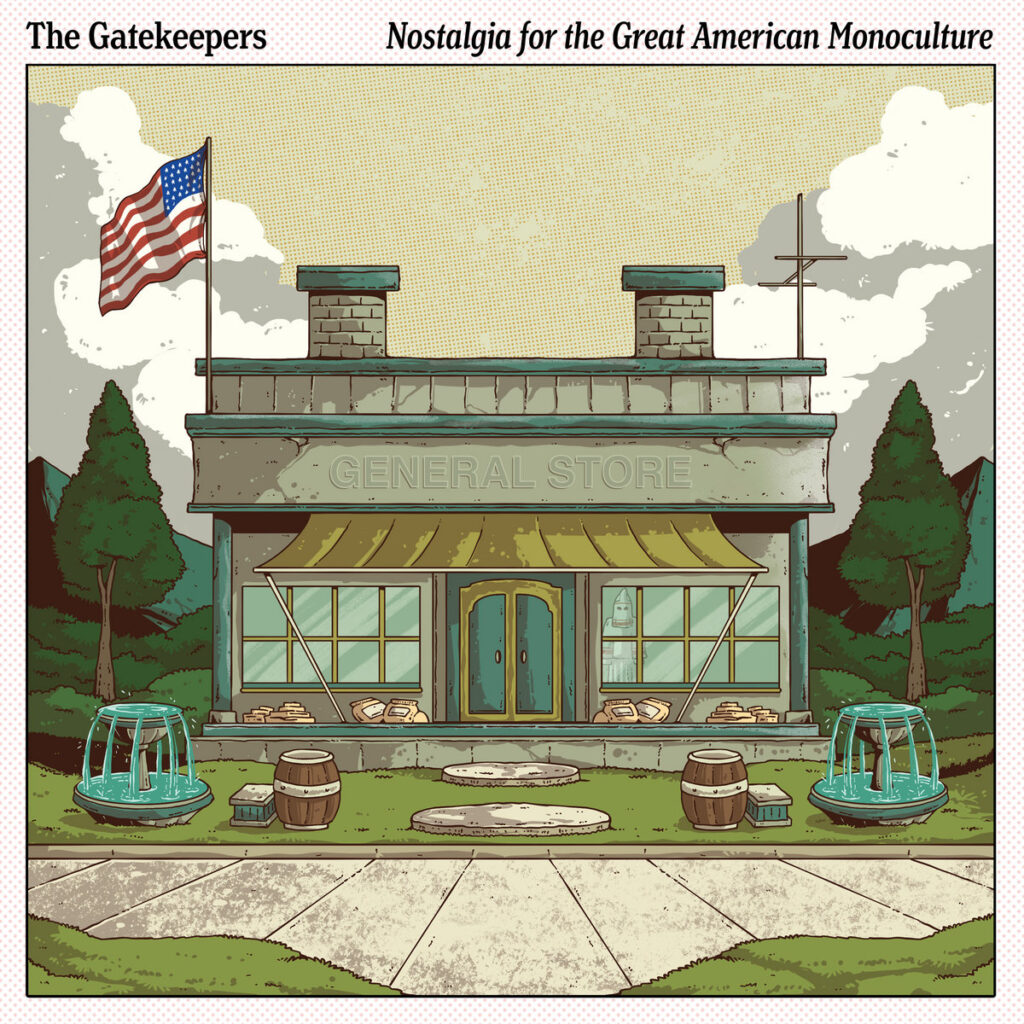
You’ve called The Gatekeepers a narrative concept album about the creative process, including its cynical side. How did you balance telling that story while keeping the music fresh and unpredictable?
I guess this is the first I’m learning it’s fresh and unpredictable! Haha! I think that my general aesthetic leans away from predictable, which is good or bad depending on your angle. But really, taking the story and chopping it into its most obvious song chunks necessitates contrast between the songs so it feels like we’re going somewhere. If anything, the ability to have a change of scenery with each new song probably makes it a bit easier to let the album not get too monotonous.
The roster of collaborators on The Gatekeepers is next level—The Residents, R. Stevie Moore, Shawn Phillips… How did you manage to bring all these legends together? Was there a specific vibe or energy you were hoping they’d add to the mix?
Honestly, it was largely a combination of timing and luck, with maybe possibly a hint of a decent intro email? (Full disclosure: in Shawn’s case, I’ve actually known him since I was 11 and am working on a documentary about him, so that was slightly easier—though I’d never asked him to perform anything and didn’t honestly expect him to be as interested as he was since he tends to do his own thing). As for energy: I really just wanted them to come and bring themselves. None of the singers on this one really collaborate within a song, so letting each person bring their specific character bolstered that narrative contrast.
Take Shawn, for example. The song ‘The Professional’ is really sort of my twisted version of ‘Today’ from ‘Rumplestiltskin’s Resolve,’ which is a space he is a natural for since it’s his space!

Was the goal to create something surreal that could mirror its deeper messages on artistic freedom and the weight of commercial pressure, or did it develop more organically as you went along?
It wasn’t really a goal to make something surreal or weird, but I think it was inevitable that it would become that. I would’ve had to try very hard to keep it out of that space.
But I also knew that it’s very easy to get pretty preachy or accidentally self-satirizing when making art about making art, so I tried as much as possible to let the lyrics reflect a much more cynical angle that could work both as satire and as “the opinion that society has but just doesn’t say out loud.”
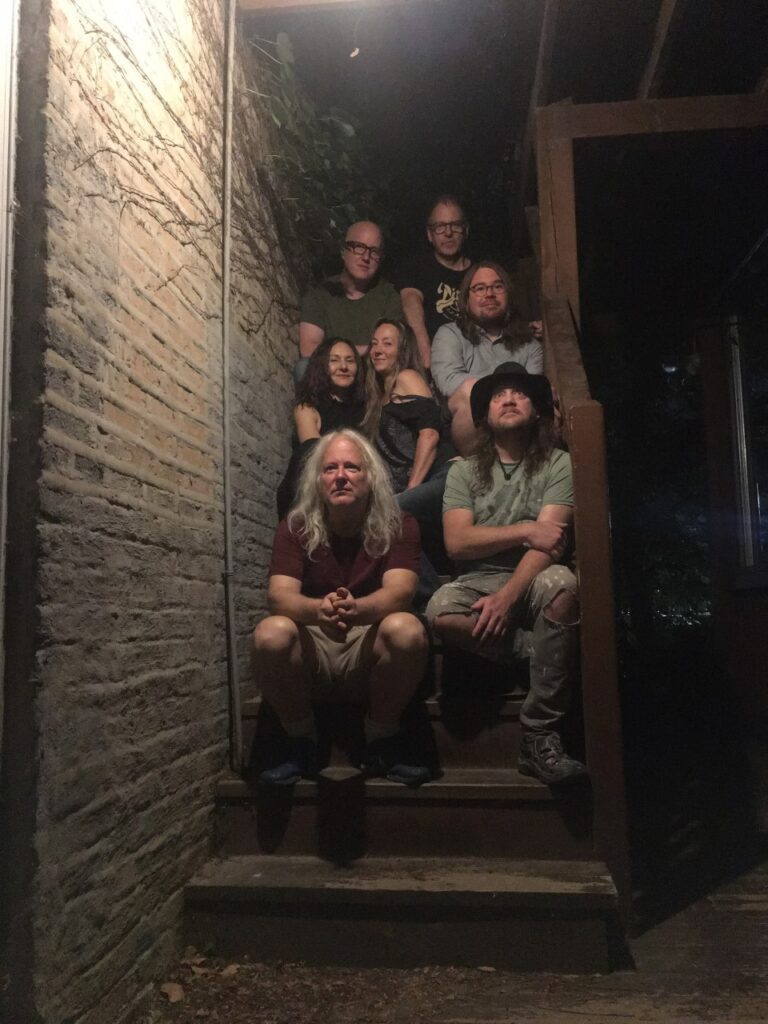
On ‘The Gatekeepers,’ there’s this battle between art and commerce that’s woven into the whole narrative. Do you think the process of creating the album mirrored that struggle in some way?
Totally. From beginning to end, it took about a year to get done because it had to fit in and around those things that actually do bring in money. That’s one layer. But also, you put a lot of time and energy into making something, and then what do you do with it? Getting it out there is also a commercial gamble.
With ‘Nostalgia For The Great American Monoculture,’ the focus shifts toward digital overload and the messiness of our online lives. What sparked this change in direction, and how did you structure the music to reflect that feeling of being bombarded by the digital world?
I didn’t plan to do a second Gatekeepers album. I really viewed it as a one-and-done. But I kept having these ideas for songs and writing them down. Once enough amassed, it seemed pretty obvious I’d do another project, so as I was sharing details of the release of The Gatekeepers, I was also reaching out to everyone saying “hey, I think I might do another one of these, in case you’re interested.” So the change in direction was really just the spark of inspiration to do it at all!
I would love to say that the musical structure has a deeper connection to the subject matter, but outside of some more obvious things, like layering vocal tracks in ‘All The Content,’ the overall sound of the album was simply the same aesthetic filter that guides all decisions: what feels right next and what’s missing?
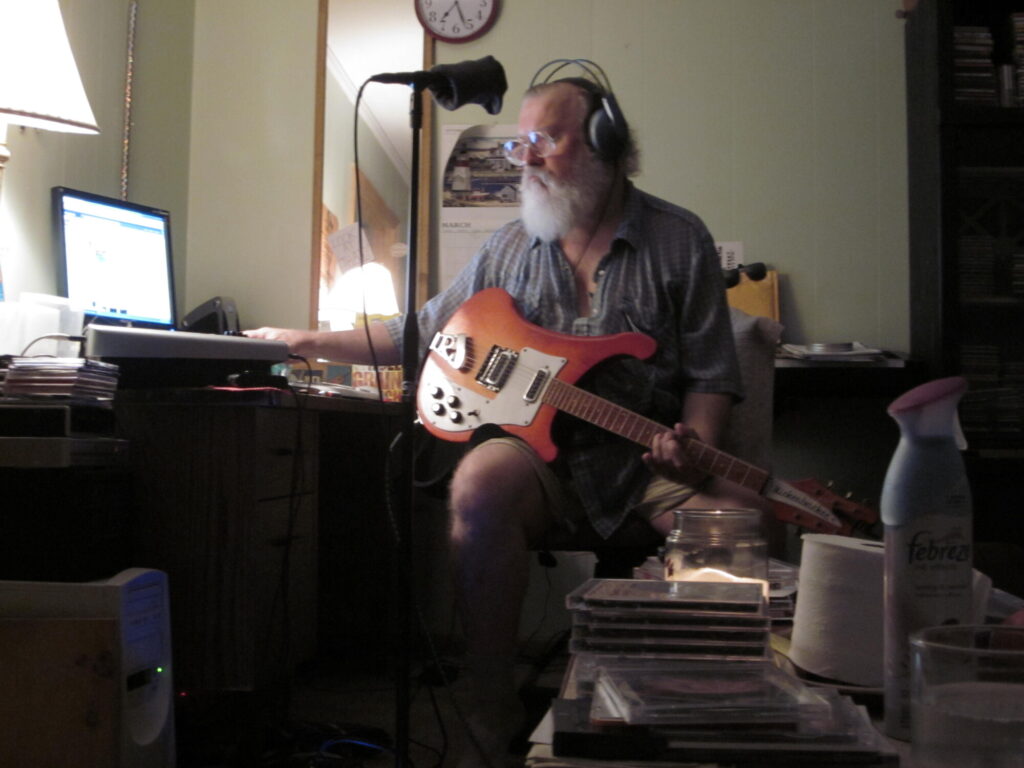
“The reality is that we’re all messy and live in a messy world”
The title ‘Nostalgia For The Great American Monoculture’ hits hard—it almost feels like a longing for a simpler, more unified cultural landscape. How do you see the role of modern tech in dividing or uniting culture, and does this album lean more toward a hopeful or cynical view on that?
I think modern technology has mostly divided us. It allows us to communicate with anyone, anywhere, anytime, but instead, we mostly use it as a set of tools that give us permission to be more insulated and decide we don’t really need to talk to anyone at all. The title is totally tongue-in-cheek, however. Sure, it’s easy to look backwards and say how great it used to be, but the past also wasn’t necessarily great. The reality is that we’re all messy and live in a messy world, no matter when we are.
Instead, I wanted the album to reflect something about the present day that is relatable (and satirical, yes) and different from the past, but also realize that any era could have a different version of the same concept with radically different problems. So it’s not really hopeful or cynical, I don’t think. But maybe it’ll encourage a few people to change their behavior in some way? Get scammed less, maybe? Haha.
Both albums are an awesome blend of prog rock, pop culture, and humor. How do you balance satire with serious commentary? Does it come naturally, or is there a conscious effort to make sure it lands just right?
I think this is just my natural voice. I think everything in life is slightly funny if you look at it the right way.
You’ve got another all-star ensemble on Nostalgia—was there a sense of continuity from The Gatekeepers’ lineup, or did this album feel like a completely fresh chapter in terms of energy and direction?
It really honestly felt like it just kept rolling. There wasn’t a huge gap between the first one being done and the second one starting, ultimately (since the cover art and final mixing/mastering and all that had to happen), so it really felt like a continuous process with different underlying material. I’m again honored that folks would do it at all, so returning for another is amazing to me.
On ‘Nostalgia,’ the themes of identity theft and phishing scams really stand out. With so much of our lives being lived online now, do you think we’re at a cultural crossroads? What’s your take on where we’re heading?
I think something will have to change, but I have no idea what it is. It could be that human brains evolve differently as a result of early exposure to this stuff. It could be that we get serious about self-care and laws related to our online dopamine reward cycles… but the simple way I look at it is this: people are pretty bad at managing passwords, and hacks are becoming increasingly sophisticated. Everyone’s gonna get hit by something sometime, but hopefully, it’s just something small. Our relationship with the Internet is still relatively young, so it’s hard to predict (for me at least).
One of the things I love about both albums is how you mix heavy themes with experimental music. Do you think this combination helps draw in listeners who might shy away from more “serious” topics if they were presented differently?
I think the serious themes and the experimental music tie together almost as an academic symbiosis. The layer that I hope draws listeners in is the satirical lyrics. Hopefully, those are the icing that make you try the otherwise low-sugar kale cake of serious topics and serious music.
The ensemble on both albums is mind-blowing, and the sound is so rich. If you had to pick one track from each album that sums up what you were trying to achieve, which ones would you choose?
From ‘The Gatekeepers,’ I think the song would be ‘I Like the Strange Things.’ It has a very pointillist texture of oddness with some excellent lyrical additions by Renaldo M and additional weird instruments by Dave Willey—clearly something that is having fun and not taking itself so seriously. Not to mention that it has a couple of alternate variations over the course of the album to really clarify the intentions of the weirdness.
On ‘Nostalgia for the Great American Monoculture,’ the selection is maybe a little harder because each song is its own mini-story… but ultimately, I have to go with ‘All the Content.’ It’s got a combo of humor and pretty fun compositional techniques, and I had a blast working on it with everyone involved.
The balance between satire, existential questioning, and social critique is razor-sharp on ‘Nostalgia.’ How do you manage to keep that tone consistent across so many tracks without losing the listener’s attention or making it feel repetitive?
I consider it a bit of a challenge to myself to not let the songs go overboard with too many deviations away from the norm—so if a song is pretty dissonant harmonically, I need to be careful how totally wild the melody, rhythm, and meter are. This leads to the songs all being somewhat structurally/formally similar. So I try not to let any song overstay its welcome. Provided that it is indeed “prog” (your choice, not mine), it’s got pretty constrained song lengths for that reason. I think the key here is variation: every single song has a different texture, with different instrumentation, and different vocalists (at least back-to-back).
And the narrative tone, I think, is all just me. Haha.
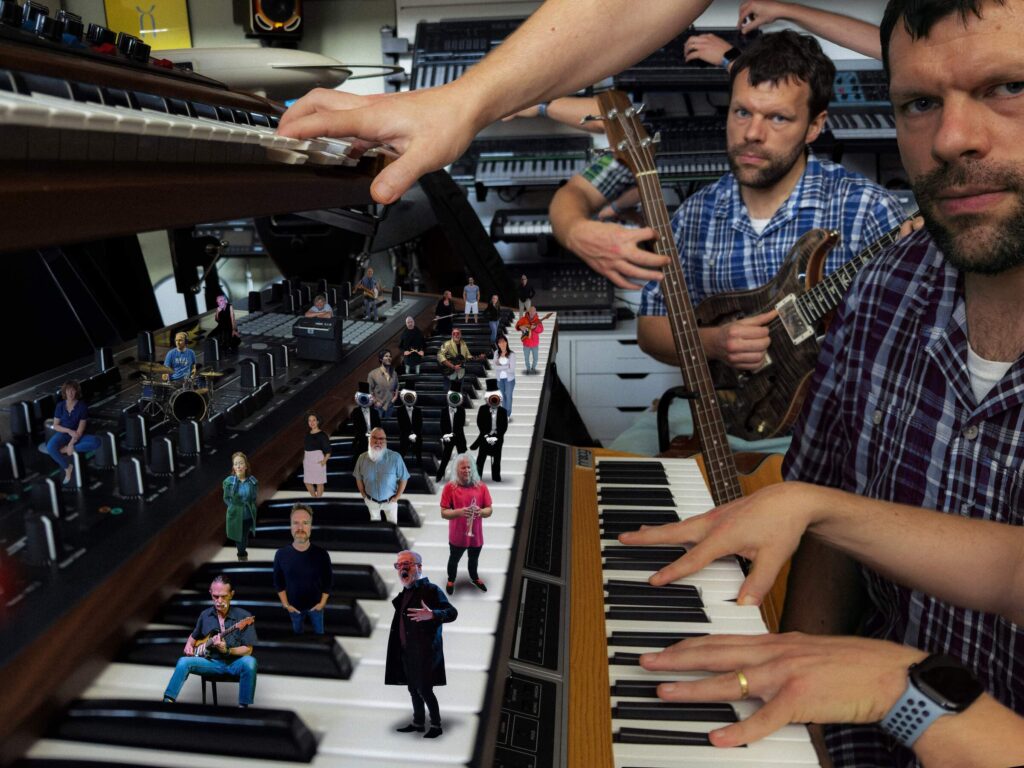
Finally, both ‘The Gatekeepers’ and ‘Nostalgia’ feel like they’re speaking directly to the current cultural moment, which is shifting rapidly. Where do you see The Gatekeepers going next? Are there new territories you’re itching to explore in future projects?
I guess it’s not revealing too many cards to say that the third Gatekeepers album is well underway. There was a period in early 2024 where I had a few folks working on songs for both ‘Nostalgia’ and this third one at the same time. It will be more narratively weaved, like The Gatekeepers, but very, very different in terms of subject matter.
Klemen Breznikar
Think Like A Key Music Official Website / Facebook / Twitter / Instagram / Bandcamp / YouTube

